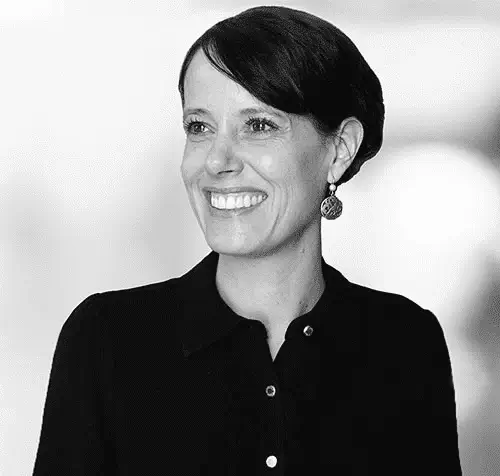Wiesbaden, May 7, 2021. Many companies are required to prepare an ESG report. And for good reason: The reports cover topics that include global problems and their solutions. But a cometis and Kohorten study shows that the reports meet their requirements in no way.
(This article was first published in German in the Börsen-Zeitung on March 11, 2021.)
Current ESG reporting is a joke, but a bad one. This is the unavoidable conclusion of the “Global ESG Monitor” (GEM), an international study comparing ESG reports from DAX, EURO STOXX 50, S&P/ASX 50 and Dow Jones.
The three letters – E = Environment, S = Social and G = Governance – are currently the megatrend par excellence on the capital market. According to expert opinions, European ESG assets are expected to reach between EUR 5.5 trillion and EUR 7.6 trillion as early as 2025, accounting for between 41 and 57 percent of total fund assets in Europe. This would make it the fastest growing area in asset management.
A problem: algorithms
But who actually evaluates the fulfillment of the claim of the letters E, S and G? Many ESG financial products rely on the assessments of specialized rating agencies. It is therefore important for companies to achieve an appropriate rating in order to be included in a relevant index or financial product. The ratings agencies’ judgments are further processed individually or in groups, adopted by index providers, voting advisors or asset managers, and further marketed in the form of sustainable financial investment products.
The problem with this is that the rating agencies also have algorithms working for them. These scan publicly available information about a company and bundle it into a rating. What the algorithms do not measure is the transparency and thus the comprehensibility of the information. This is analysis computers are notoriously incapable of performing accurately. Algorithms are also scraping unverifiable data from a variety of sources that have not necessarily been independently verified and are therefore easy to change.
The most important source is therefore the non-financial report, which exists in two variants (integrated in the annual report or as a separate sustainability report). The GEM evaluated and compared reports for 140 globally leading companies from DAX, EURO STOXX 50, ASX 50 and Dow Jones. The focus was on topics such as stakeholder dialogue, the use of prevailing frameworks, and quality criteria such as measurability of disclosures, appropriateness of reporting, and reliability of presentation.
The study result of the GEM under the leadership of the investor relations consultancy Cometis and the market research institute Kohorten: superficiality instead of depth, claims instead of evidence, full-bodied promises instead of integrated strategies.
This conclusion is alarming because, according to political will, the purpose of ESG reporting is not to form the basis and thus justification for creating new financial products. Rather, the purpose of reporting is to document companies’ contributions to solving globally pressing problems. Information on environmental protection, gender equality or the avoidance of forced child labor within the various stages of the supply chain requires explanation, especially in a global context.
Unfortunately, global NGOs – which lack true enforcement power – have assumed the responsibility to define standards for reporting. We are a long time away from binding rules. But without binding rules, there is no possibility of sanctions and no global understanding of transparency. It is precisely transparency that is not in good shape, as the GEM analysis shows.
Dax outperforms Dow Jones
A look at the regions studied makes it clear: The reports of the DAX companies show well in an international comparison, even if they lack significantly in depth and transparency. One example: An above-average number of DAX reports provide calculation formulas. Overall, however, only 39 percent of all DAX reports do. And they owe their good perception only to the fact that the reports of other indices are even less transparent in this aspect (26 percent of Dow Jones, 24 percent of EURO STOXX, and only 5 percent of ASX reports).
The comparison of the DAX and Dow Jones company reports is particularly stark with regard to the use of a glossary – the part of the report that could explain what information is important in general. Here, around 20 percent of DAX reports provide such an appendix and not a single Dow Jones report bothers to do so.
There is also little depth on the subject of stakeholder dialogue: compared with the average of 61 percent of all reports examined in an international context, the DAX leads with 75 percent when it comes to naming the stakeholder (groups) taken into account. Further to this point, the majority of DAX reports are silent on the details of critical dialogue and relevant issues.
This is problematic, since the dialogue is the basis for a substantial materiality analysis. This, in turn illustrates the sustainability risks that the company has specifically identified for itself. As a critical observer, one may ask the question: due to the lack of transparency, is the stakeholder dialogue really a systematic process or a compulsory exercise that merely reproduces existing interests and consolidates world views?
The examples could be continued. In the end, the certainty remains: If our descendants are to have the same opportunities as we do, then progress in the field of sustainability must be documented even more clearly. If we do not solve the problems, a bad joke threatens to be made at the expense of the next generations.
Do you want to improve your ESG rating? We will support you! Contact us here.

Michael Diegelmann has gained experience in over 150 communications projects (IPOs, investor relations, M&A, crisis) and has been working in the field of capital market communications since 1997. He is the author of 16 book publications relevant to the capital markets and was previously project manager at an international consulting firm and a Frankfurt brokerage house.


